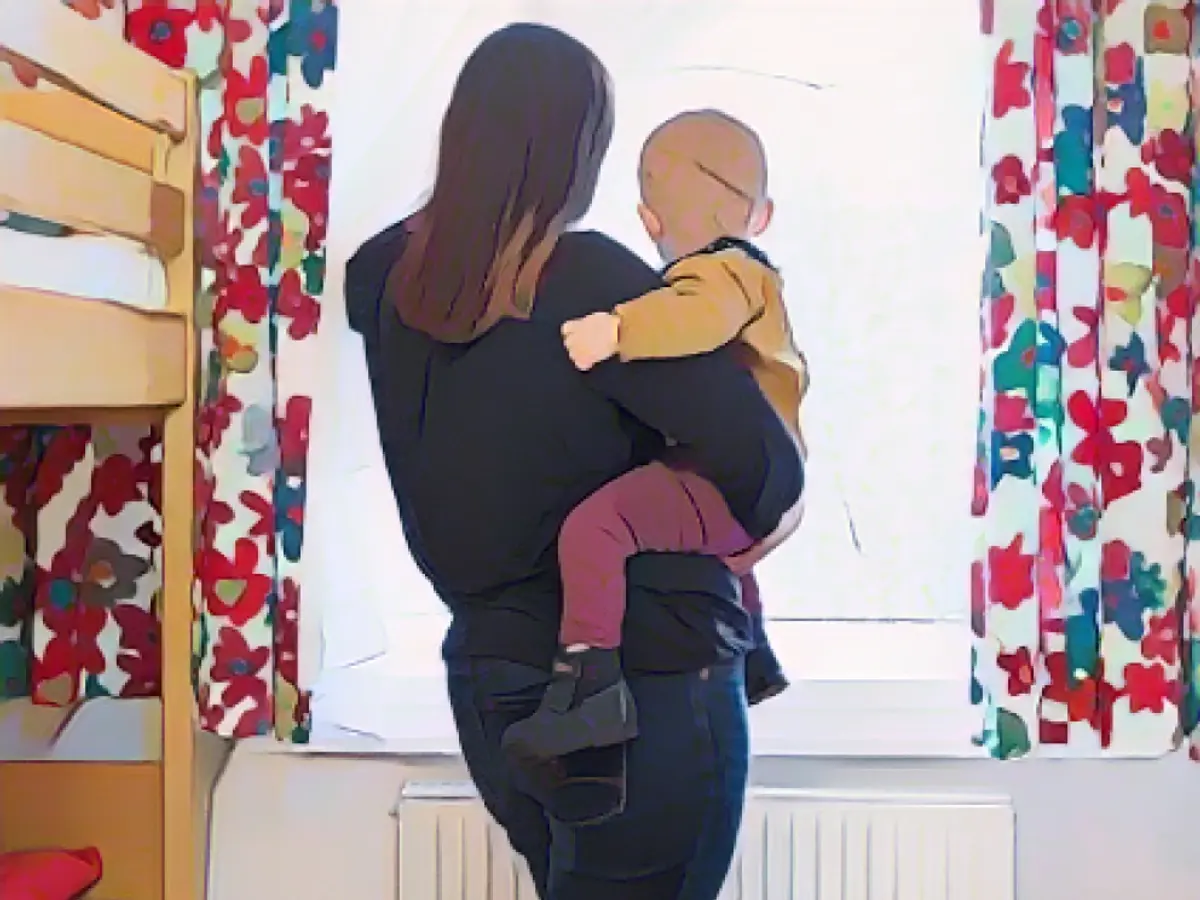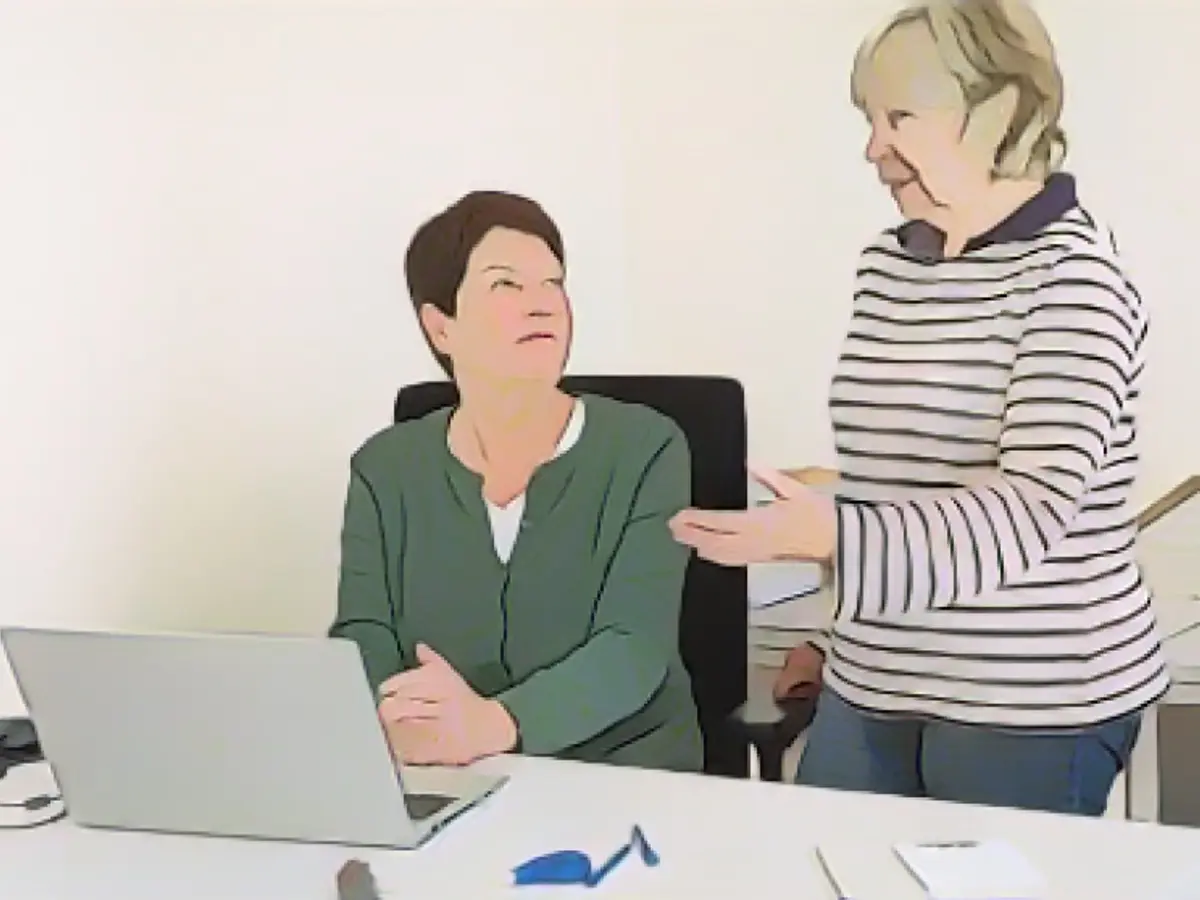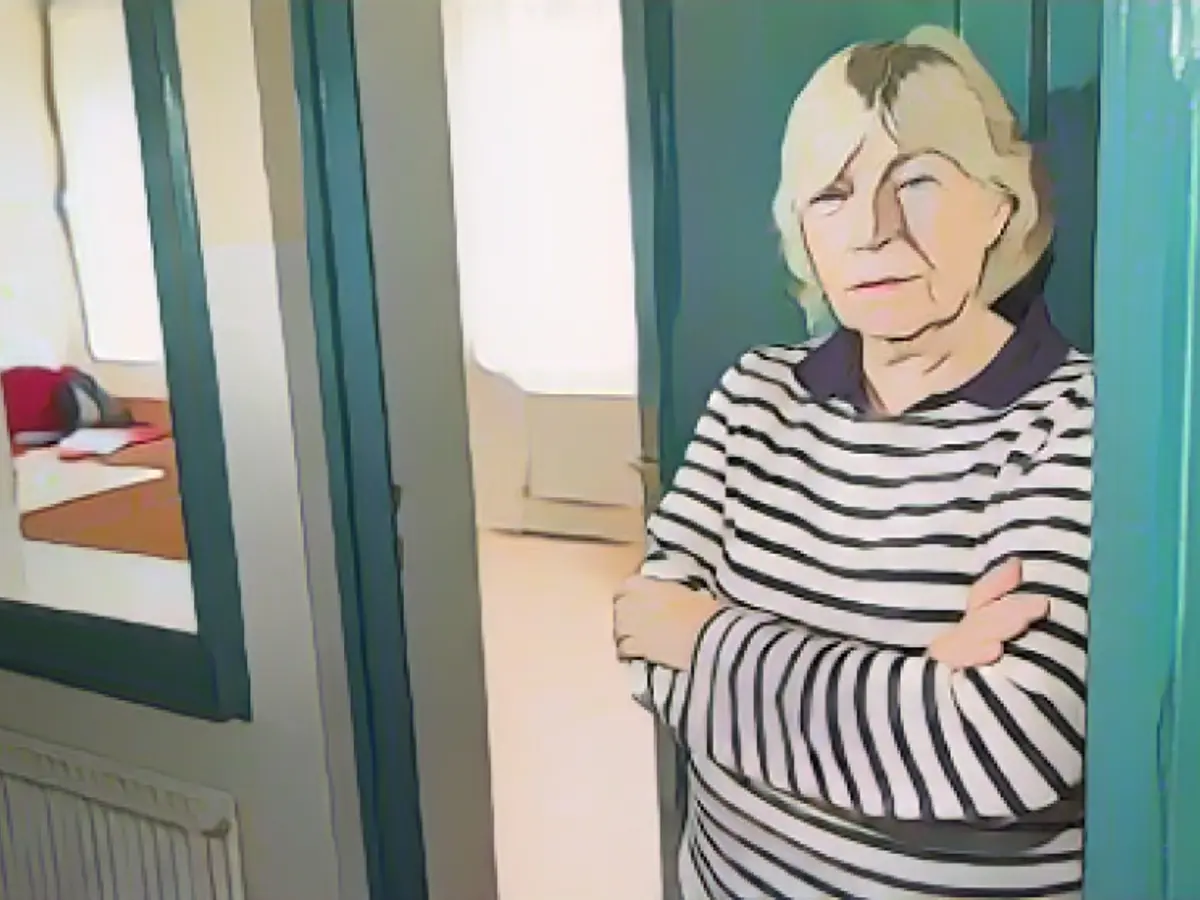Guardian of Troubled Souls in Berlin
Berlin –
On Tuesdays, Sabine Schulz (73) steps out of her Charlottenburg apartment, not disclosing her destination even to her husband. "I don't share the specifics," she explains, "the location remains hidden."
This secretiveness forms an intricate part of her work. As a social education volunteer and a former social services employee, Schulz aids persecuted women at the Caritas women's shelter once per week, from 9 am to 1:30 pm. Her role serves as a safeguard for these women, guarding their sanctity from potential harassment.
On Tuesdays, the staff at the facility get their much-needed reprieve thanks to Schulz's presence. "They convene periodically," she explains, "by being here, I enable their participation without compromise."
Keeping the Secret
The shelter lies in the western outskirts of Berlin. Gabriele Kriegs (64), the facility's head, advocates for discretion. "We prefer not to provide a more precise address," she says, "we aim to avoid confrontations with those with ill intentions."

As Sabine Schulz makes her way around the facility, she keeps a vigilant eye on the entrance. "I observe the entrance and those who seek entry carefully," she contends, "verifying they are authorized to do so."
Accessing Safety
Residents usually have keys, but there's an alternative means of entry. In the event of a forgotten key, a pre-written code word serves as a substitute. This code is strategically placed near the desk in a small room adjacent to the entrance.
Interaction between Sabine and residents is minimal. "We rarely discuss the traumatic incidents in their families," she says, "instead, we focus on the children's welfare and organizational aspects."
A Ringing Reality
A ringing phone at Sabine's desk interrupts our conversation. "Caritas women's shelter, good morning," she answers, then asks, "Are you under threat?" - but it's a false alert, a woman is enquiring about apartment options. "If you reach out to your social services," Sabine replies, "what area do you reside in?"

Triggers without Warning
Not all calls bear benign intentions. "It could've been a woman seeking assistance," says Sabine, "but more often it's an acquaintance of a beleaguered woman or healthcare personnel looking for a safe haven for a woman in danger."
Last week, a flustered caller begged for help for a friend, driven by desperation. "She was desperate to save her friend," recalls the volunteer bouncer.
Rising Violence Against Women
Intimate partner violence (IPV) has spiraled in Berlin, with statistics revealing a 10.4% increase in such cases in the past year. In fact, a total of 17,263 victims experienced such violence, consequently demonstrating an alarming perpetuation of domestic abuse. Such statistics have given rise to concerns in expert communities, emphasizing the dire need for additional placements.
Protective Measures
The BIG hotline, an organization aiding women in instances of IPV, is one of the organizations assisting in the alleviation of the crisis. Grohe, the hotline’s head, underlined the vital role of secrecy in preserving the safety of the women and children residing at the Caritas shelter. "We want to avoid violent men congregating outside the facility," she clarified.
Meanwhile, Sabine Schulz, the esteemed community volunteer, continues to contribute her time and serving spirit to the crucial mission of keeping the Caritas women's shelter a sanctuary for those afflicted by domestic violence.








